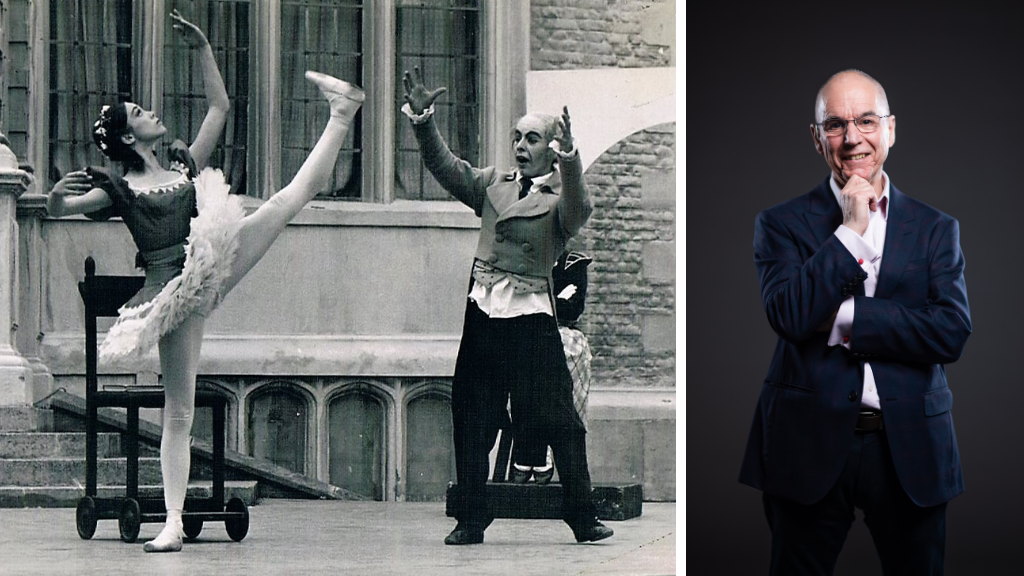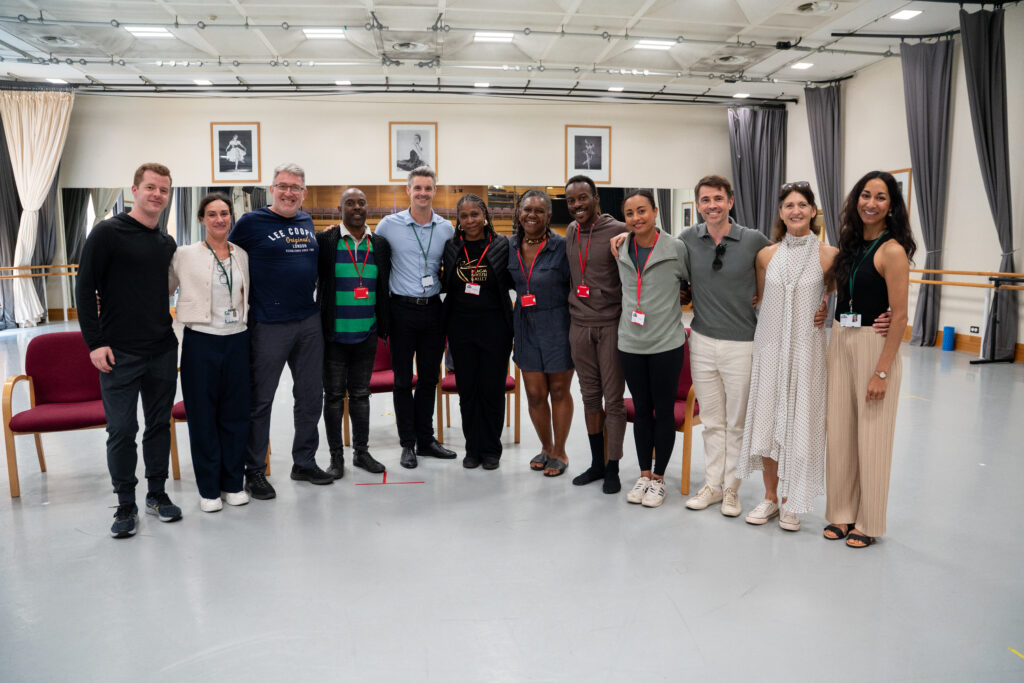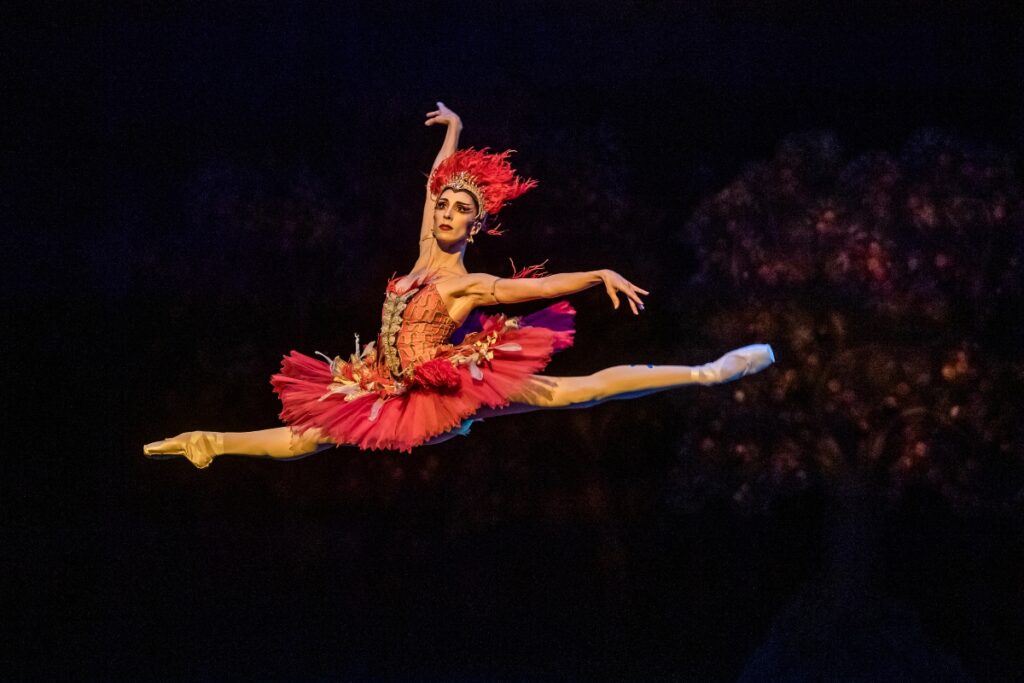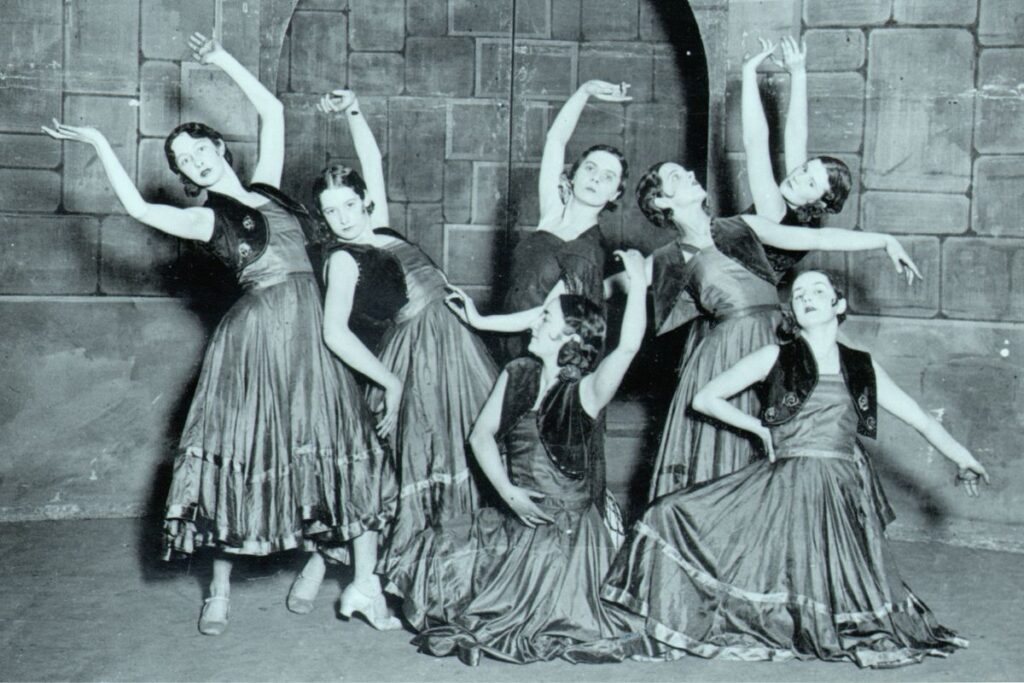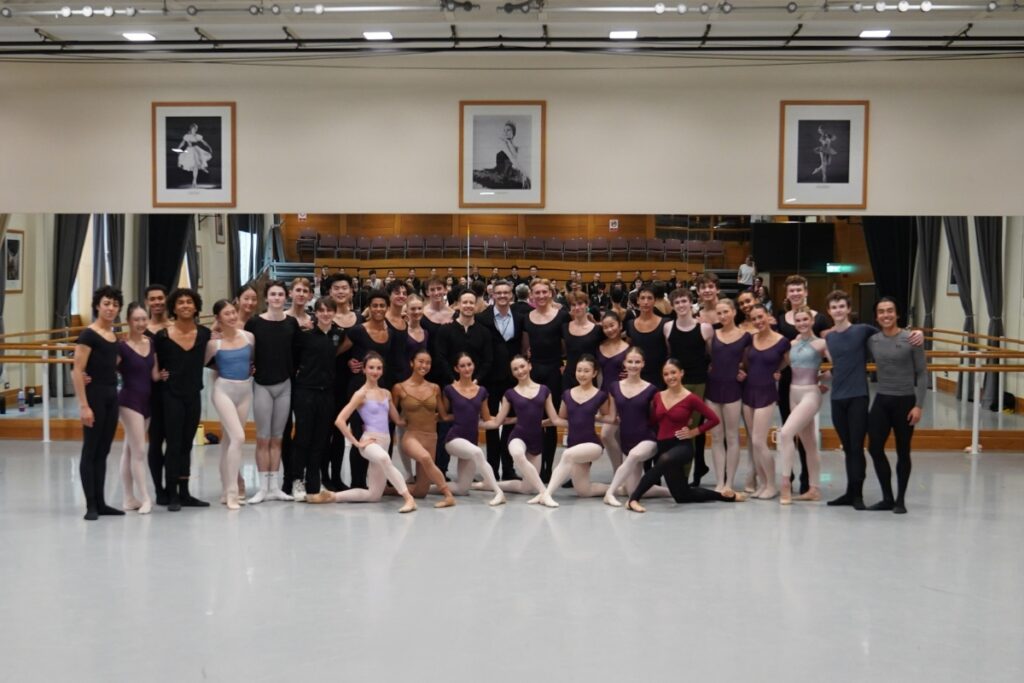Mental Health Awareness Week – an interview with Terry Hyde
This week is Mental Health Awareness Week, an annual week-long celebration to raise awareness of mental health issues and how we can achieve and maintain good mental health. This year’s theme is loneliness, with each of us encouraged to think about the impact loneliness can have, and how we can connect. We were grateful to speak to one of our alumni, Terry Hyde, about his work in mental health support for dancers.
Support at the School
As part of our Healthy Dancer Programme, a comprehensive range of mental health support is available to our students at all times. Our expert healthcare team includes counsellors as part of a school-wide mental health provision led by a clinical psychologist Mental Health and Safeguarding Lead. We are constantly working to cultivate and maintain a culture where students feel safe and comfortable to express any concerns, however small, and normalise talking about mental health. All of our students are given the tools to practice self-care and encouraged seek help when they need it. Mental health is just as important as physical health for our dancers and we motivate students to take the same approach to their emotional problems as they would for physical injuries.
Terry Hyde MA MBACP
Terry Hyde joined The Royal Ballet School at 16 and, before graduation, joined The Royal Ballet. He left The Royal Ballet after 3 years to join London’s Festival Ballet (now English National Ballet) as a soloist. He has since become a qualified psychotherapist, specialising in therapy for performers. Terry is currently creating a new Community Interest Company (CIC) that aims to empower dance companies and schools to provide better mental health support for dancers, and support them to become more nurturing environments. We were thrilled that he was able to take the time to speak with us and answer a few of our questions.
What lead you from performing as a dancer to becoming a psychotherapist?
When I retired I did about three or four years of sales management. I had these ideas going around in my head and I set up a business management organisation to look after people in show business. Some of them at the end of our meetings would start unloading their problems on me – I’ve obviously got that sort of face! I sold the business fifteen years later and I thought I’d like to learn more about this, and that’s when I decided to train as a psychotherapist. I realised that dancers need dancers to understand their mindset and their background. In January 2017 I set up the Counselling for Dancers website, so there’s the transition, a big leap. Pun intended!
Does your background as a dancer benefit you as a psychotherapist?
When the clients come to me, one of the first things I ask is if they’ve had previous therapy and has it helped. If a dancer comes to me with severe anxiety and they’ve already gone to counsellors for therapy for that, invariably they’ll have said, ‘Is dance a career you should be doing with that severe anxiety?’ The physical therapy side of things is specialised and that has worked, but the counselling and psychotherapy side isn’t yet so specialised, and some counsellors don’t necessarily have the specialist knowledge they need to treat the issues specific to dancers. One of the things with my CIC that I’m setting up is to do CPD courses for trained counsellors who want to specialise in treating dancers. I will also be offering counselling placements to trainee counsellors and psychotherapists so they can build up their knowledge, and I will be there to supervise them.
The theme of Mental Health Awareness week is loneliness. Do you see a lot of loneliness in dancers?
Yes, but it’s in a strange way. It’s the loneliness of not being able to talk. They’ve got friends, they’ve got family, but they feel because there’s a stigma about mental health, especially in the performing arts, they can’t speak up about what’s wrong with them. It’s either physical or emotional; dancers work through their injuries and regardless of whether they’re emotionally feeling awful, they work through it because that’s what they feel is expected. Most of us were three, four, or five years old when we first started dancing and historically, in some schools, there has been a culture where very young dancers are told to push through the pain, push through the emotions and leave emotion outside. There’s a fear of showing weakness, that’s where the loneliness can come from. In my talks and workshops, I say it’s okay not to be okay. If they’ve got that confidence, then they won’t be lonely because they can talk about it.
Do you feel there is enough mental health support for dancers?
No there’s not enough, and there’s not enough good support. Some vocational schools do have very good counsellors, but not all of them understand dancers. I’m trying to make up a directory of ex-dancers who are now counsellors and psychotherapists, so that will hopefully build up support.
How do you think we can improve mental health support for young dancers?
Once I start training counsellors and psychotherapists, I’ll also be able to go into schools, if invited, to start training the counsellors that they’ve already got. I also offer mental health and self-care workshops for schools. All schools need to take a proactive approach and give students the tools to prevent problems rather than waiting until they occur and to tell students, rather than waiting until you need a counsellor, this is how you can look after yourself, this is how you can deal with things.
What advice would you give to young dancers struggling with mental health?
Ask for help. Yes, you may feel as though you’re vulnerable, but ask for help. The issue may be the fear of how people may react when you approach them, the fear that they might say: ‘Pull yourself together, you’ll be all right.’ If the student doesn’t have the confidence or feel safe to ask the teachers or staff, then they won’t ask for help, therefore it’s so important that schools create a culture where their students feel safe and willing to ask for help when they need it.
How do you think the pandemic impacted the mental health of dancers?
It’s actually opened up the talk about mental health, so it’s been helpful in that way. It’s been helpful in other ways where professional dancers coming to the end of their career have said, ‘Actually, I’m going to give up now, I’m going to retire.’ They’ve started to do other things during the pandemic, built up a business or studied to get a degree, so there have been positive things.
However, the pandemic has been challenging for people who have a very fixed mindset, and many dancers do tend to have a fixed mindset. They don’t have the flexible/growth mindset which is so important. Those with a fixed mindset may start to feel anxious and depressed because they can’t see beyond what’s happening, whereas others have thought, ‘wow this is good, I can do this and that, I can do classes online that I never thought I’d be doing’. It’s a totally different open way of thinking. Because of our training as dancers, there’s often a right and wrong way of doings things and that can create a very fixed mindset which comes with issues like perfectionism and imposter syndrome. In the workshops that I do, I ask the question ‘does it matter?’ Someone with a fixed mindset will say: yes it does, but then you rationalise it, you work through it with them and think what’s the worst that can happen? You go through a process to get out of that mindset.
Do you feel everyone can benefit from therapy?
Yes. Everybody. In my training, I did four years of weekly therapy. You’re dealing with people that sometimes have horrendous cases and it can affect you. We as therapists have to have an hour and a half of clinical supervision a month, so we can take what we’re feeling to the clinical supervisor and talk it through with them. In my therapy practice, I set myself aside when clients talk about horrendous situations that they have been through, after which I bring myself back together again. The clinical supervisor is there to make sure that you’re doing all right and that you are all right to be able to treat your patients.
Everyone should have therapy, you don’t have to be mentally ill to have therapy. Before I concentrated on performing arts, I was seeing the general public. Some people came to me in their middle age with good jobs and lovely families but there was something in their life that was missing. They weren’t mentally ill but there was something not right. Going through therapy with them, you can go back into their childhood and find out what the possible triggers are. All of our triggers as adults are childlike, our reactions are childlike. Everything comes from the past. A lot of counsellors will just deal with the symptoms. Others, like me, will go deeper.
Do you have any general tips for looking after your mental health as a dancer?
When there’s a rest day, have a rest day. Don’t do anything else, no cross-training, no running, just rest. Our body needs rest, our mind needs rest. Meditation: daily meditation practice – I’m trying to advocate this in schools now. Just a five-minute meditation before the first class of the day. It’s been proven in a research study within a primary school, that when students were given a five-minute meditation at the start of the day, there was less disruption, everything was calmer, work was done, and there were no suspensions during the research period.
Be kind to yourself, be careful how you speak to yourself. As dancers, we have teachers and directors that are giving corrections and those voices can sometimes get rolled up into our head, into our voice and turn into negative thoughts – ‘you’re not good enough, you can’t do it, you’re useless, you might as well give up.’ Always speak kindly to yourself, as though you’re speaking to your four-year-old self.
Thank you, Terry, for your wonderful insights.

